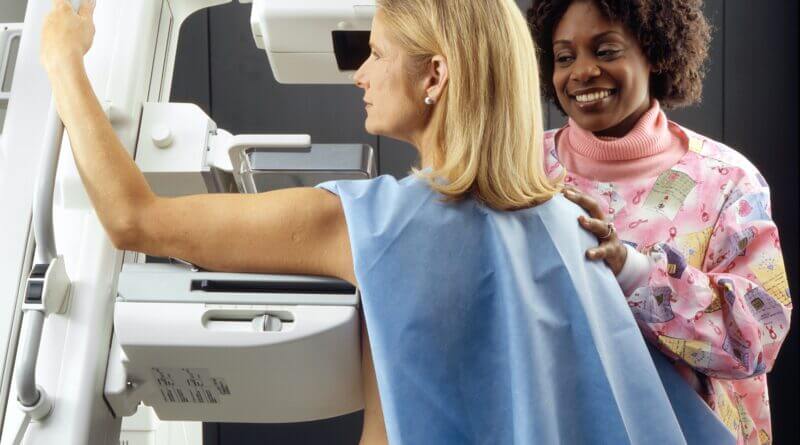Mammogram screenings remain important to women
By Dr. George Flinn
Note: Dr. George Flinn provides this information to underscore the importance of mammogram screenings in the fight against breast cancer.
The coronavirus pandemic remains at the forefront of most healthcare talk in and around Shelby County; however, it doesn’t mean we have the luxury of ignoring other important areas of healthcare— especially in areas of prevention.
A recent study from the National Institutes of Health saw a dramatic decline in mammogram screenings during the early stages of the pandemic.
Before the national emergency was declared on March 13, 2020, the median weekly rate of screening mammograms in the United States was 87.8 per 10,000 women, according to the study.
Using the power of IBM Watson Health, the study found the weekly rate of screening mammograms dropped to an average of 6.9 screenings per 10,000 women in April of 2020. That is an approximately 92 percent DECREASE in mammography screening.
The study found the rate in which women received screening mammograms has yet to bounce back to pre-pandemic averages in select demographic groups.
Women who are low-income, African-American and/or Hispanic are not getting potentially lifesaving screening mammograms at the same rate as before the pandemic, according to the NIH study.
No reasons were cited in the study as to why certain women are not getting their mammograms at a similar rate before the pandemic, but we can likely assume a major factor is fear of covid transmission. Or, it could be that health care habits have been broken in the 2-year interval.
Doctor’s offices, generally speaking, are low-transmission environments. Patients are masked and are often socially distanced in waiting areas. Staff are masked, sanitized and likely vaccinated.

While we remain in one of the most prolific periods of the pandemic—more than 1 million new cases of Covid-19 were reported to the CDC in a single day for multiple days in the United States during the month of January— there is reason for optimism here in the Mid-South.
We are seeing a drop in the seven-day average for new cases and a decrease in virus reproductive rate in Shelby County. Currently, 64 percent of people 18 and older in Shelby County are fully vaccinated (with DeSoto County right behind at 63 percent).
Women across the Mid-South are encouraged to return to the routine of yearly screening mammography. The most effective tool we have in early detection of breast cancer is a screening mammogram. It has been shown many times that early detection of breast cancer leads to better patient outcomes.
The last thing anyone involved in healthcare wants is another health-related crisis. If we don’t do our diligence to increase the rate of women receiving screening mammograms, we risk seeing a dramatic increase in breast cancer diagnoses in the very near future.
If you are one of the many women (or in certain cases, men) who have not gotten a screening mammogram since before the pandemic, now is the time to get back into your yearly preventative health routine. There are many mammography centers and access to mammography should not be a challenge.
American College of Radiology guidelines recommend women begin getting annual screening mammograms at age 40.
I urge all who are in the ACR mammography guideline recommendations to return to yearly screening mammography for your benefit and maintenance of your good health.
Dr. George Flinn is a Memphis-based radiologist and owner of The Flinn Imaging Centers






